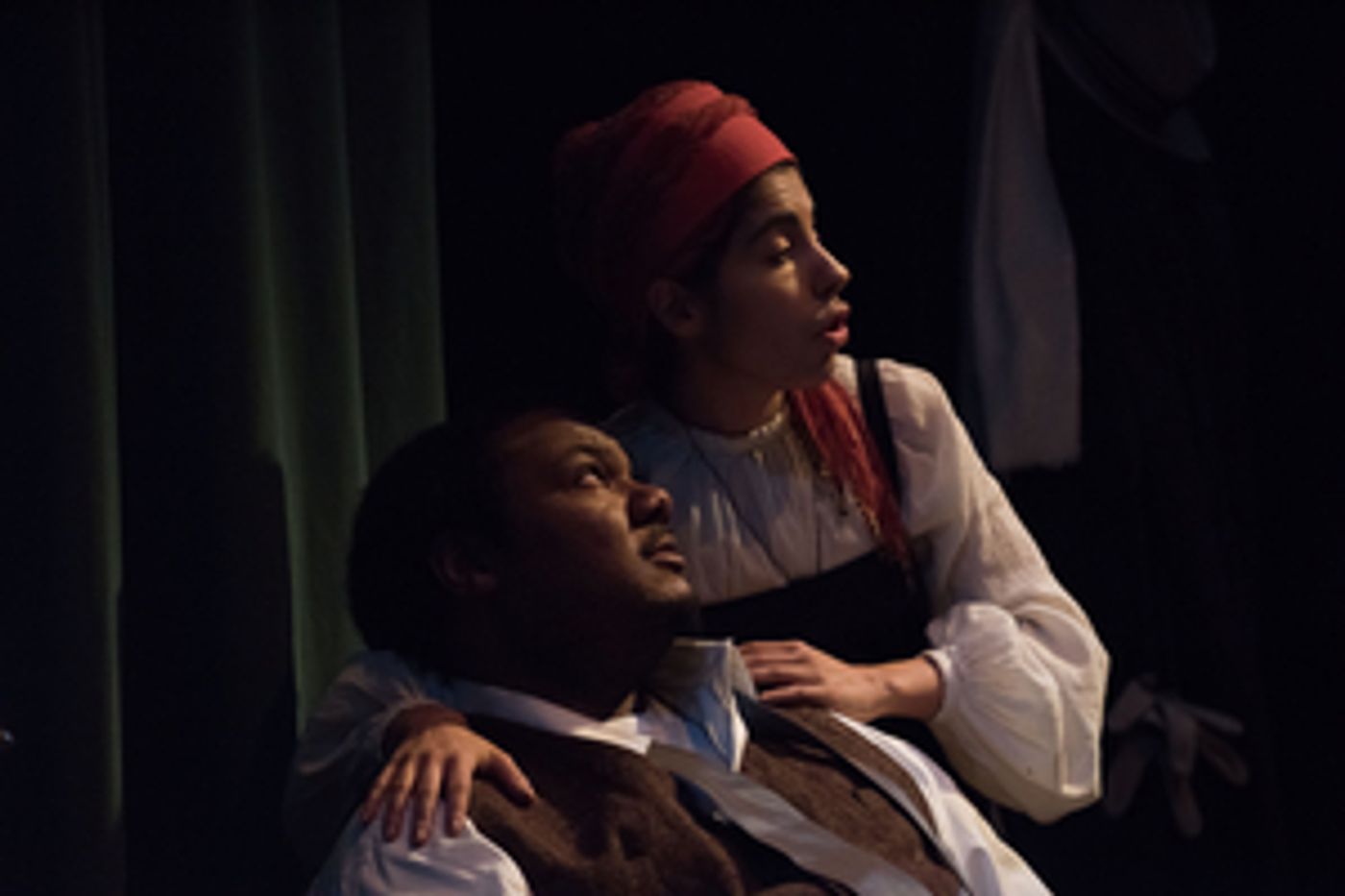BWW Blog: Practical Aesthetics- Getting Comfortable with Being Uncomfortable
Practical Aesthetics Scholarship recipient Langston Darby discusses the Atlantic Technique

Several of my teachers have said, "part of this first year is about getting comfortable being uncomfortable." Generally, this statement means two things:
1. As an actor studying Practical Aesthetics, you have to get comfortable with not knowing exactly how every scene is going to go. Don't be mistaken-you will prepare and you will rehearse. But if you're really playing in the moment, everything you do will be based on what your partner is doing. You cannot control what your partner is playing; therefore, you will never know exactly what to do in a scene until you do it.
2. As an actor-as an artist in general-you have to figure out how to manage the inevitable challenges of the career. In a guest class, David Mamet said that most people quit the business because they can't get used to being uncomfortable; I believe him. These days, just about everyone's lives are full of uncertainty, but artists have pretty much always had it bad.
There is, however, a third inherent meaning in this statement.
Since starting at Atlantic, I've spent a lot of time examining the idea of habit. We try not to label habits as good or bad, but to identify the habits that support us and those that don't. We try to learn new habits that elevate our work and keep us healthy. As nice as all this sounds, it's no easy task. In his Principals of Psychology (a little required reading), William James says "that habit simplifies the movements required to achieve a given result, makes them more accurate and diminishes fatigue." When we make something a habit, it requires less conscious effort to do. Consequently, when we try to create a new habit that opposes an old, ingrained habit...it can be a bummer, draining; ask anyone who has ever changed their diet.
In an early voice class, practicing breathing stretches, our teacher said to tell her if something was painful, but to be aware of the difference between discomfort and pain. Changing the way you do anything can create discomfort, even if the changes are positive. Whether you're moving to a new city or releasing muscles that you've been tensing for years; change can be uncomfortable. But if you can stick it out, if you can have patience and take care, discomfort can transform into a new normal. It may not have the same feeling as the old normal, it may take regular practice to maintain, but you can grow accustomed to it. If you're willing, the faculty at Atlantic can help you discover remarkable potentials in yourself and work with you to develop those potentials into skills you can call your own. They coach you through the discomfort, and they warn you when you're doing something that might hurt you. From what I've experienced, I can say that I'm working with professionals committed to guiding students on a journey to create habits that will allow us to be as versatile and evocative as we can-to be actors with longevity.
In another guest class, F. Murray Abraham talked to us about when he started working again after a few years of inactivity. He discovered that some of his skills weren't as sharp as they used to be, so he had to get himself back into a regimen. I asked him how he balances the responsibilities of his career and life while staying in practice; he told me he gets up early. Mr. Abraham is 76 years old and is an energetic, focused, and dynamic person. He's working on learning at least 50 of Shakespeare's sonnets to keep his memorization and interpretative skills keen, he does daily vocal exercises, and he rides a stationary bicycle. We don't usually associate the words "discipline" with "comfort," and it takes discipline to commit to that kind of practice. Today one of our teachers made it clear: "you're doing something wrong if you're comfortable when you're doing a scene...discomfort is your best friend." I believe her.
Langston (no relation to Hughes), native to Laurel, Mississippi (home of A Streetcar Named Desire heroine Blanche Dubois), currently resides and works in New York City. Just before the industry shutdown, Langston managed to make his Off-Broadway debut in The Black History Museum...According to the United States of America, created and directed by Zoey Martinson with HERE Arts Center. Langston is an eclectic performer with stage credits that include How I Became a Pirate (Walnut St. Theatre, dir. Rob McClure) and Much Ado About Nothing(Shakespeare in Clark Park, dir. Alex Torra); voiceover performances for the award-winning Story Pirates Podcast; improvisation with Comedysportz Philadelphia, and a burgeoning on-camera career with an appearance in Lionsgate/Starz's 2020 short film award winner Echoes of a Winter Sunshine. Among other institutions, Langston is an alumnus of Atlantic's Acting Conservatory and a UCB Diversity Scholar. Learn more at langstondarby.com.
About the Practical Aesthetics Scholarship
The Practical Aesthetics Scholarship is Atlantic's annual full-tuition, early action scholarship for each of our professional conservatory programs: the Full-Time, Evening, and Global Virtual Conservatories. Candidates are considered based on merit and need demonstrated by the overall strength of their audition and application.
Learn more here
Videos

